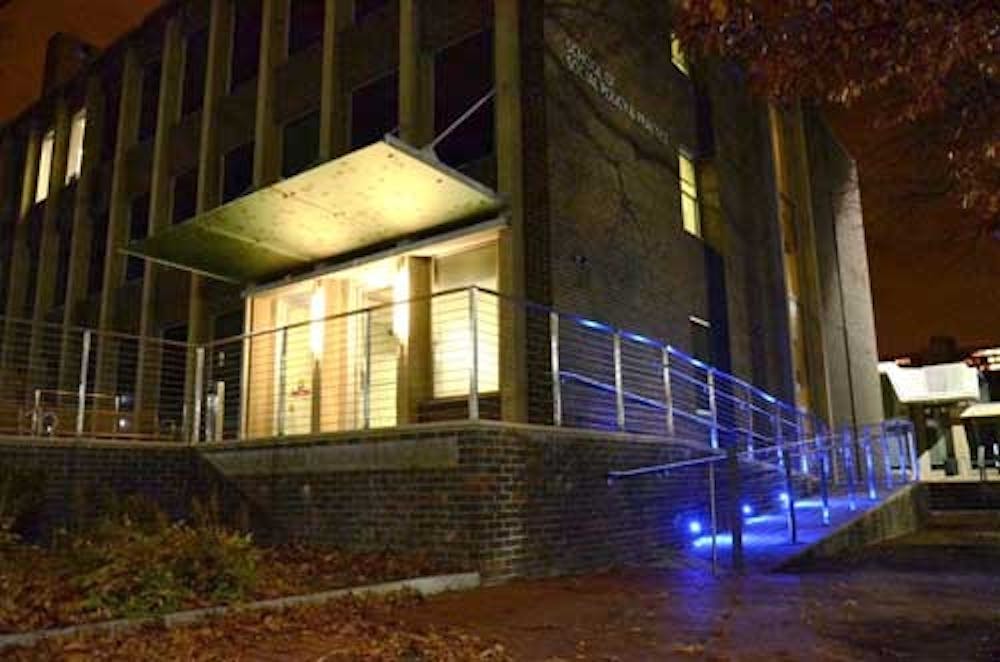
A group of Master of Social Work students who enrolled at Penn in order to make a difference in their communities have been disillusioned by their inability to shape their own education.
Students have complained about the poor quality of their fieldwork placements with nonprofit agencies. Moreover, they feel that administrators at the School of Social Policy & Practice do not take their concerns seriously.
In addition to attending class two days a week, MSW students spend three weekdays working as interns in nonprofit agencies across five neighboring states.
Field work is an essential component for students to gain experience and fulfill requirements needed to earn a license as a social worker.
Currently, students in their first year may specify three broad areas of interest. However, their field placements are ultimately decided by the Field Education Office.
“We are not allowed to find our own internship. In fact, we have very little control over what our internships are,” said a second-year MSW student who wished to remain anonymous due to potential disadvantages when she enters the job market.
Students have also complained about the quality of the program.
The second-year student was unsatisfied with the level of attention received from a supervisor at a field placement.
“I wasn’t seeing any clients, which is the bread and butter of what we were supposed to be doing,” the student added. “We have lots of field-based assignments, and I couldn’t do them because I didn’t have any clients.”
When she brought up the negative experience to SP2 administrators, the Field Education Office contacted the agency and then informed the student that the agency no longer needed them.
“The message I got from the school was, ‘You’ve been fired because you messed up,’” the student said. “As soon as I walked in [director of Field Education Anne Weiss’ office], she said ‘I don’t want to hear about he said’ and, ‘We have to beg an agency to take a student this late in the year.’”
This incident left her feeling belittled by administrators, and she even considered dropping out of the program.
“It is a difficult conversation when a student is asked to leave an agency, and [later on] to talk about some of the behaviors that may not have been the best to do this work. That’s a hard conversation for students to hear,” Weiss said.
Ashley Arens, a second-year MSW student, also had complaints from her assigned placement last year.
Her placement supervisor changed three times in the course of two months. She also said the Field Office at SP2 did little to follow up on her progress.
“I think there is a poor communication between the agencies and the Field Office,” Arens said, adding that the majority of meetings are voluntary for supervisors.
Many students are anxious to seek productive field placements since they feel that the training they get in internships is much more valuable than lessons learned in the classroom, given that they revolve around real-life situations.
“The reality is, we are not getting what we are paying for in many cases,” the anonymous student added.
However, Richard Gelles, the dean of SP2, maintained that the school is doing their best to preserve the quality of the program.
While resource constraints prevent staff at the Field Education Office to visit every agency, they act upon feedback from field liaisons and students and make changes accordingly, Gelles said.
Students who voiced complaints claim that whenever a dispute occurs between a student and a field agency, staff at the Field Education Office tend to side with agencies rather than students.
Another second-year MSW student, who wished to remain anonymous, was discouraged from pursuing a career in social work when the student brought questions about which fieldwork to pursue to administrators.
However, Gelles said administrators sometimes become harsh to students because they wish to ensure that SP2 students are trained to the highest standards and will not cause problems when they become professional social workers.
From Gelles’ perspective, the clients from agencies are the first priority. It is beneficial for students to learn to cooperate with them.
Students may resolve any further problems through the grievance process within SP2. They have opportunities to present the case in front of a committee of administrators.
Some fear, however, that they will expose themselves to further disadvantages by making use of the process because they believe administrators will continue to protect each other.
But Gelles disagrees with this misconception.
“The grievance process has worked, and it is not stacked against students,” Gelles said. “In the past, a case was filed against a tenured professor who had done inappropriate actions. He had to stop teaching due to the inappropriate actions. I sign with the fact.”
The Daily Pennsylvanian is an independent, student-run newspaper. Please consider making a donation to support the coverage that shapes the University. Your generosity ensures a future of strong journalism at Penn.
DonatePlease note All comments are eligible for publication in The Daily Pennsylvanian.








